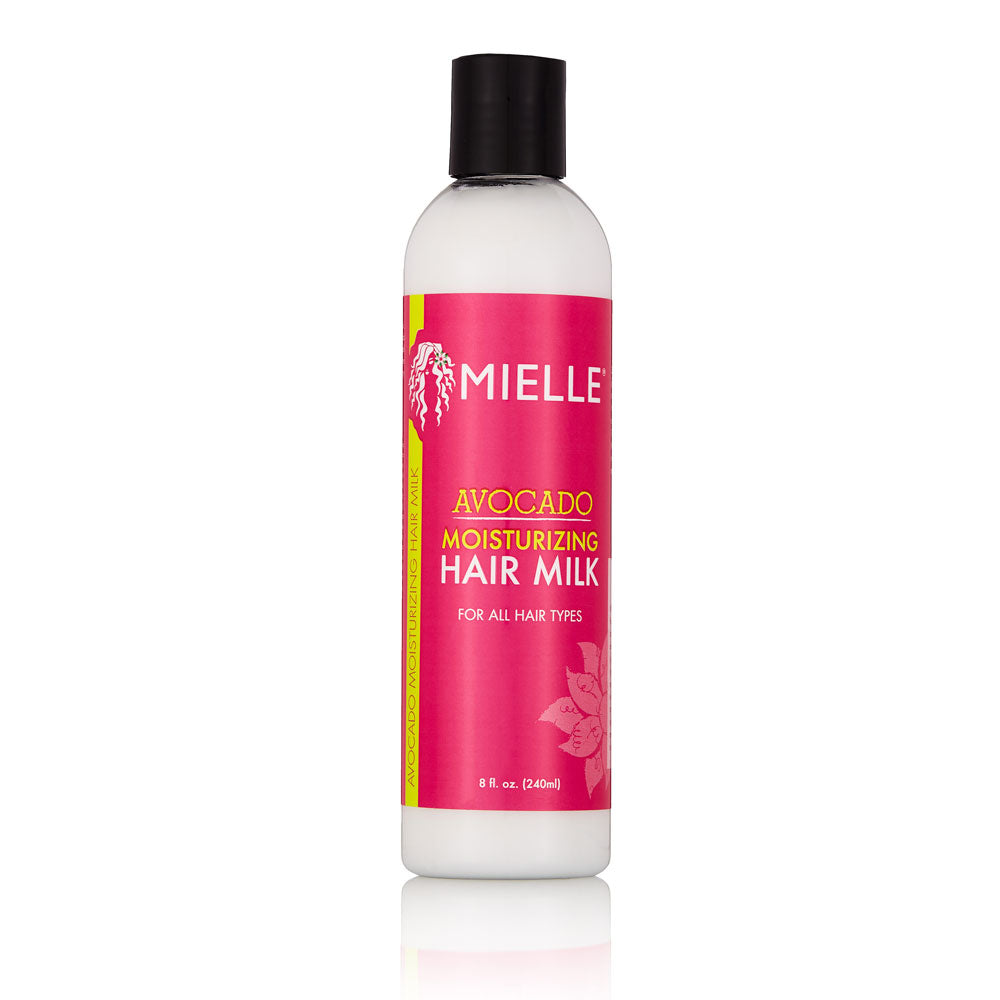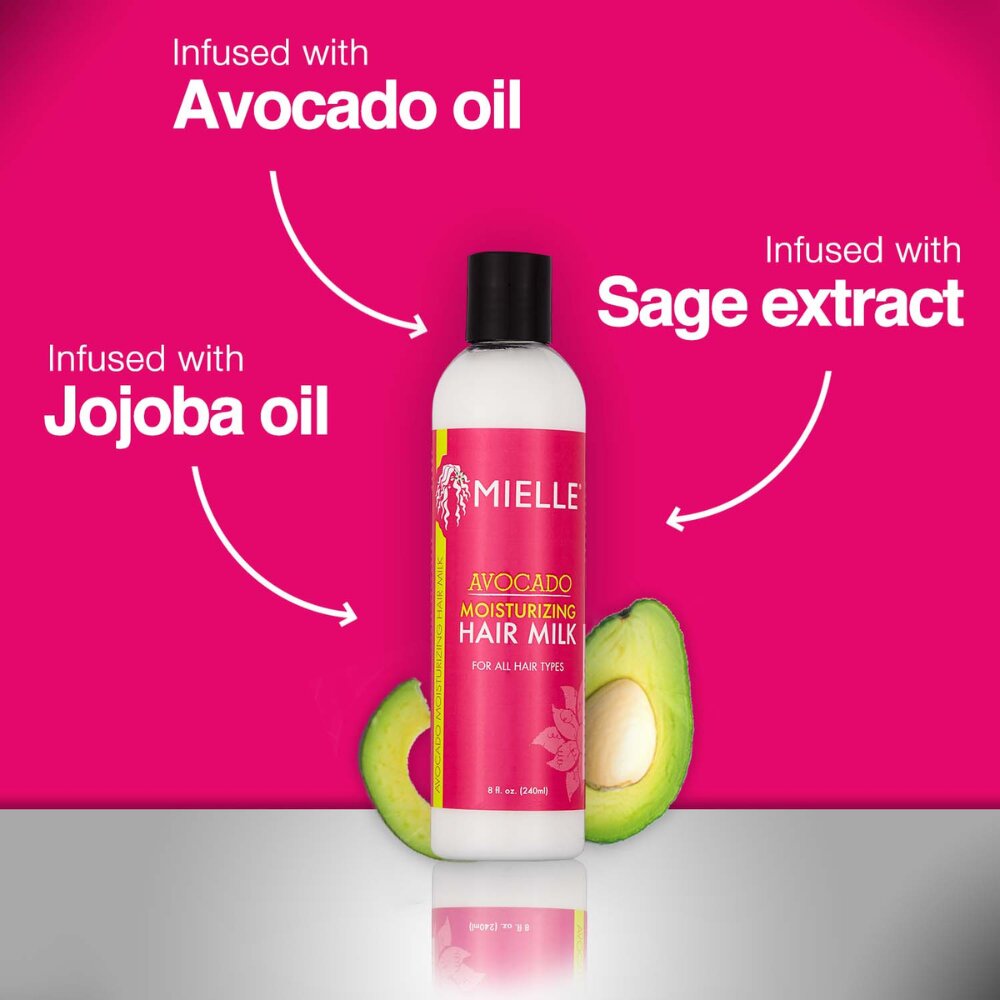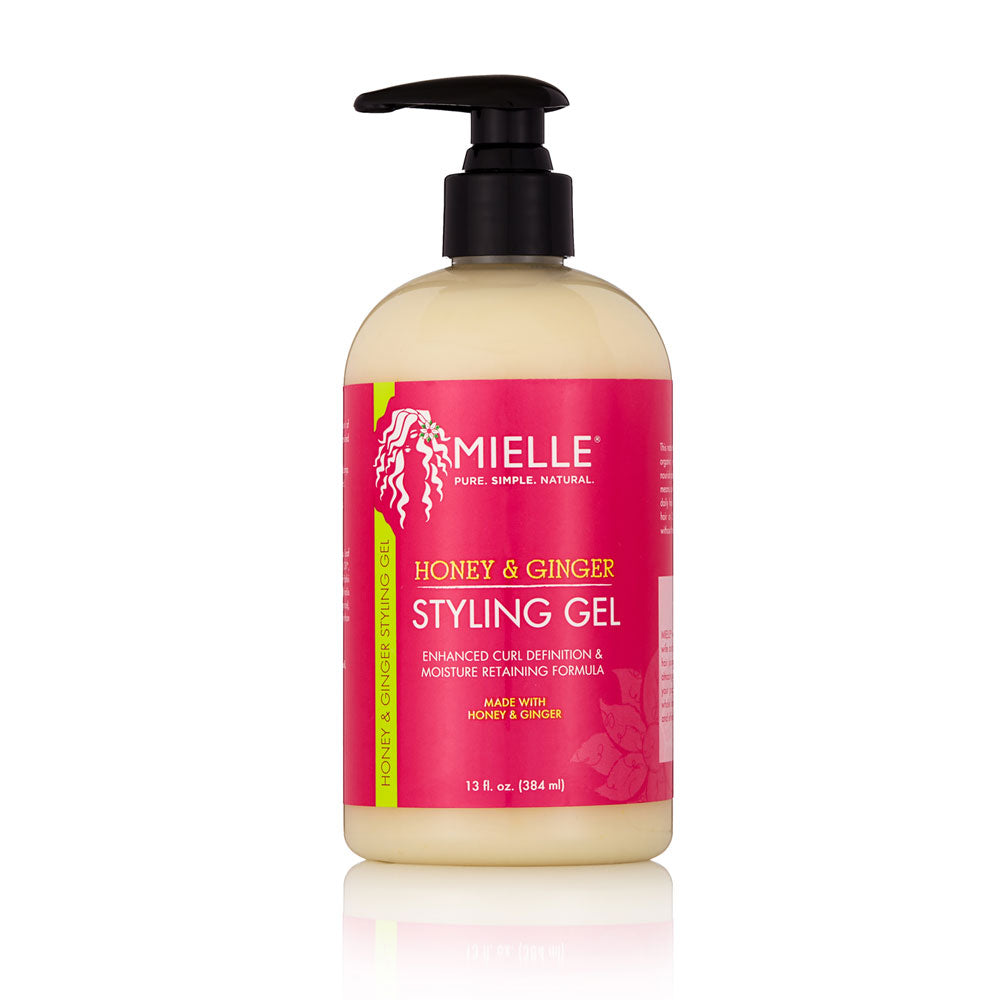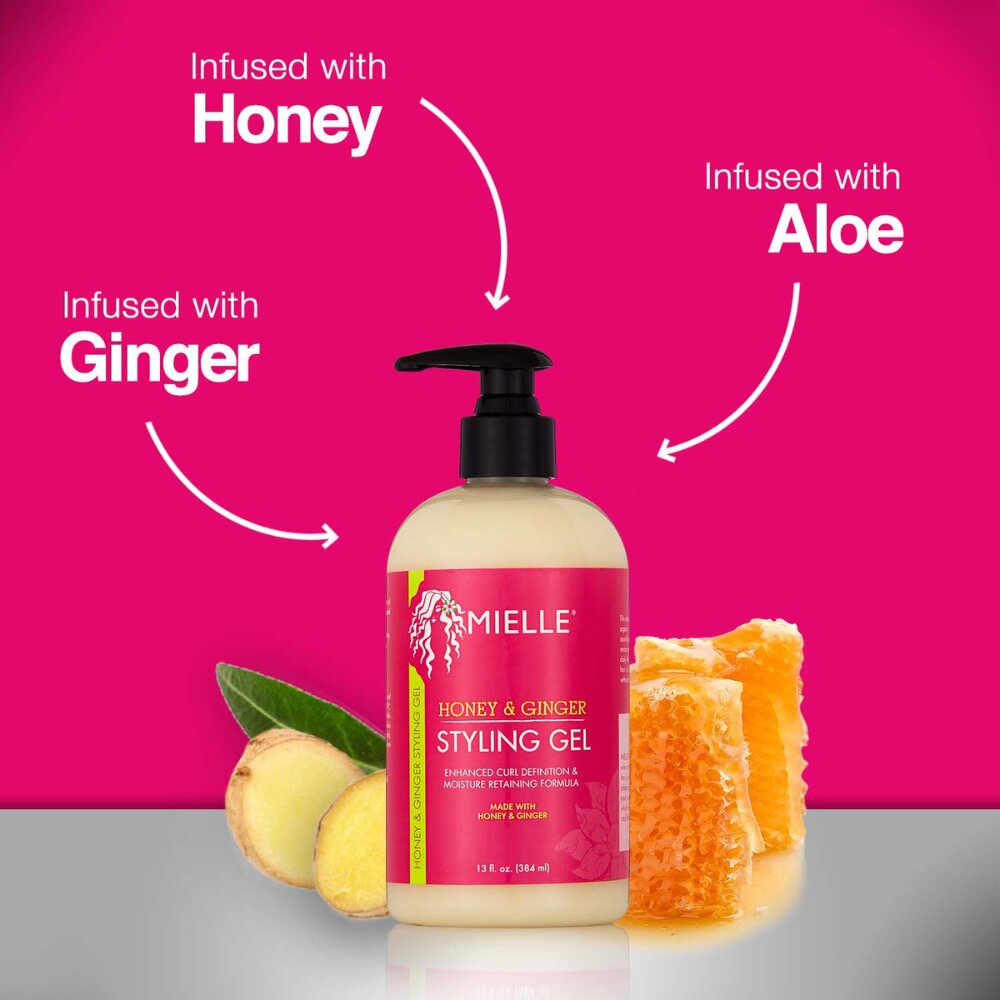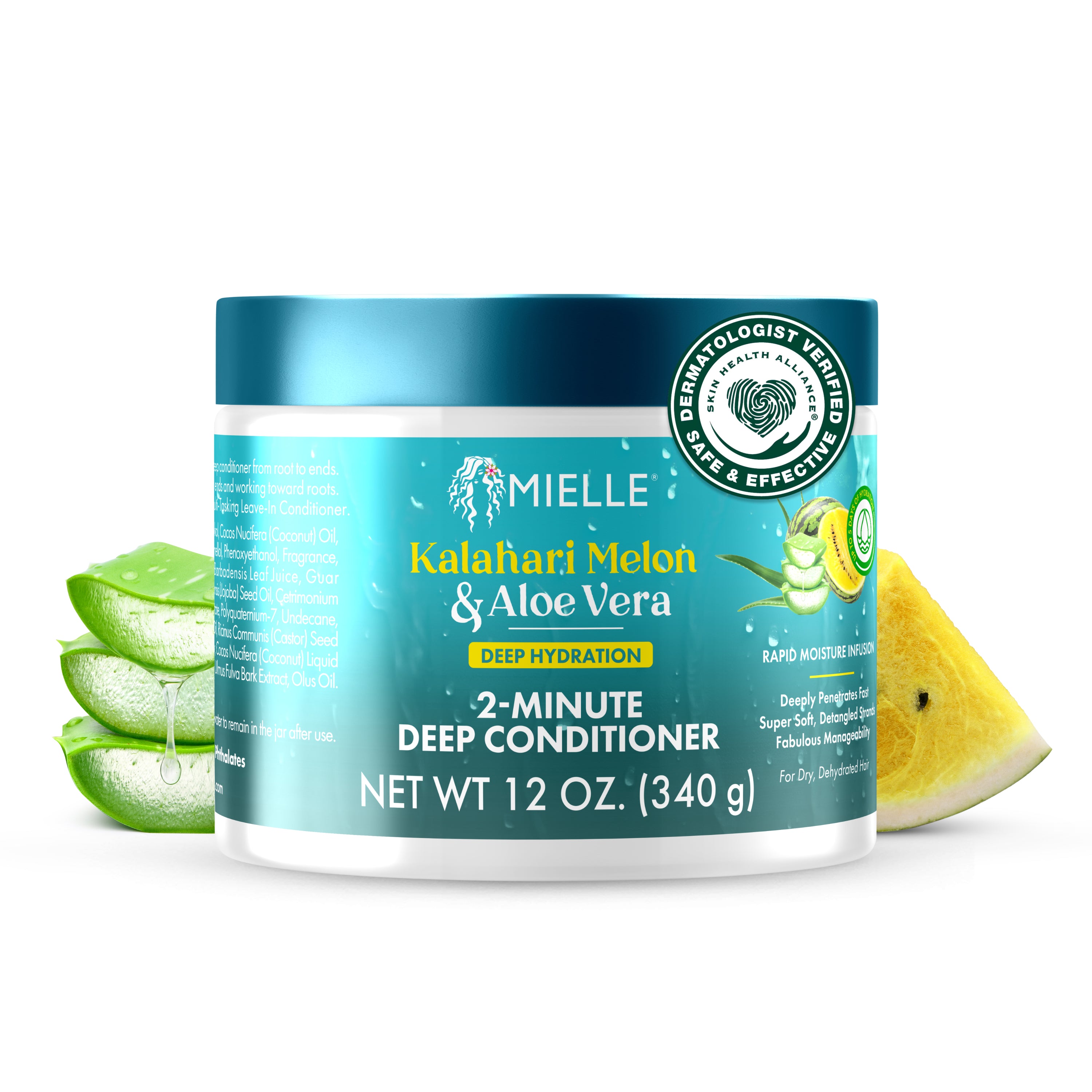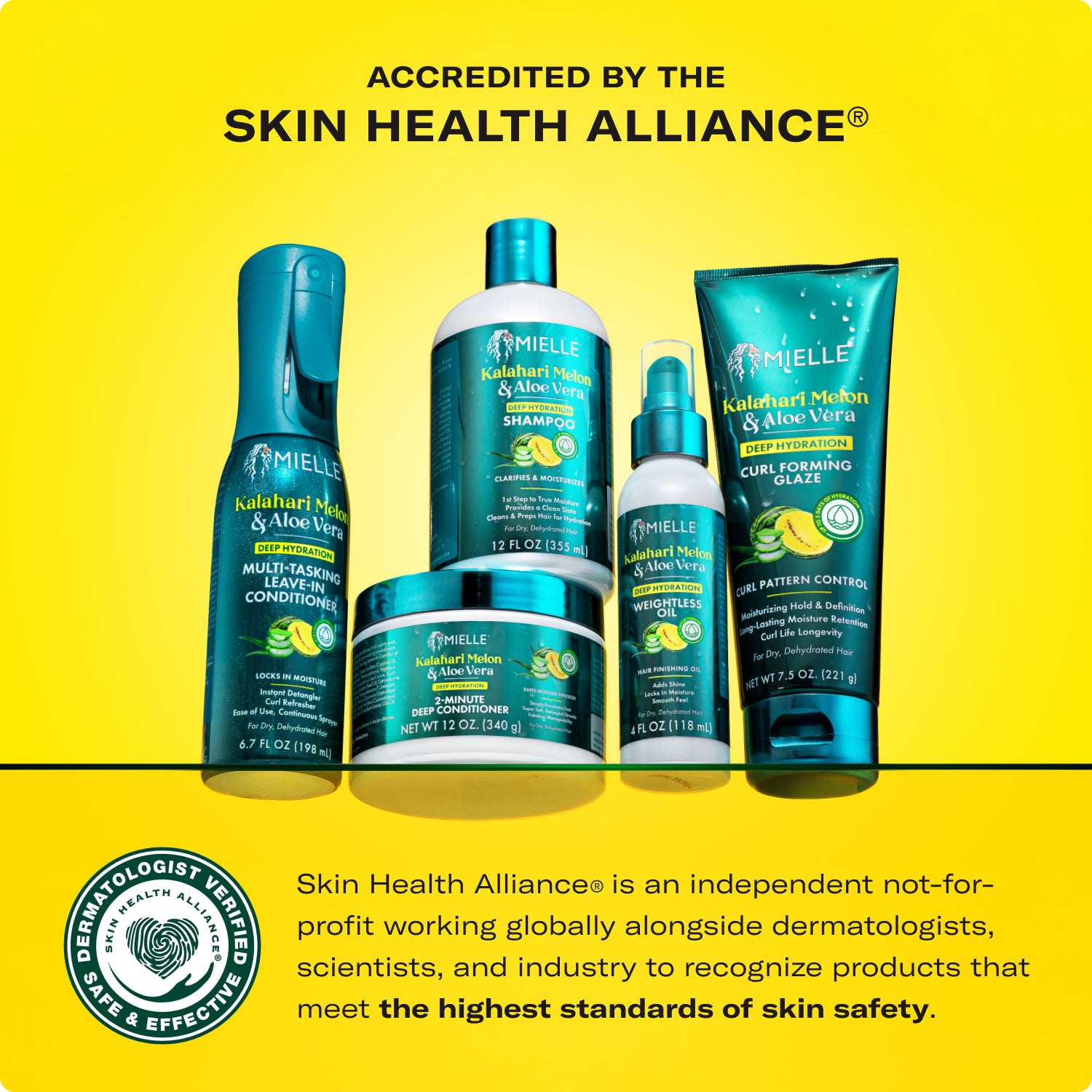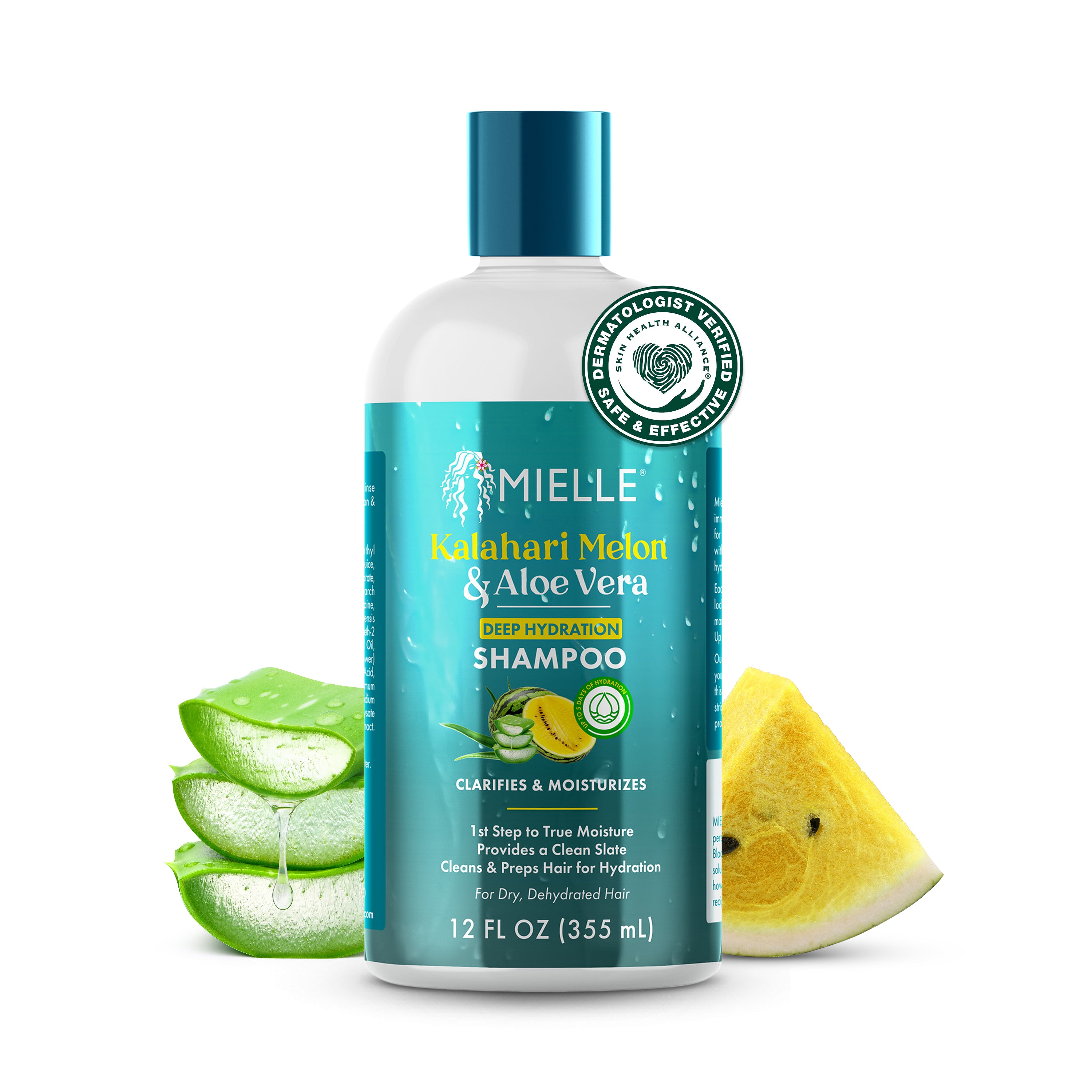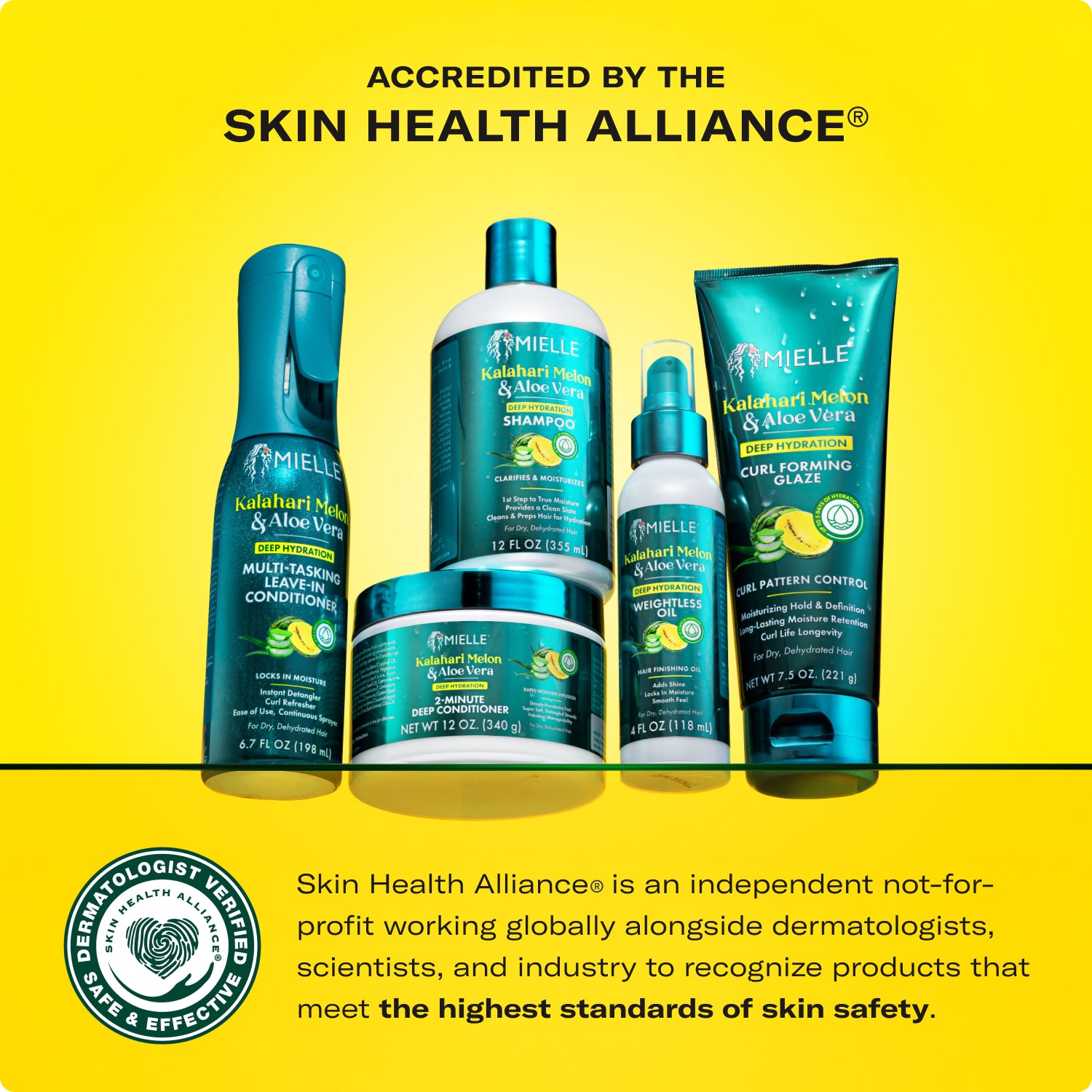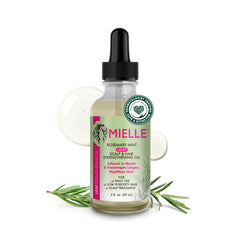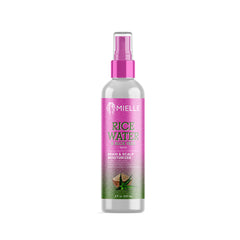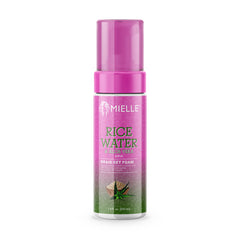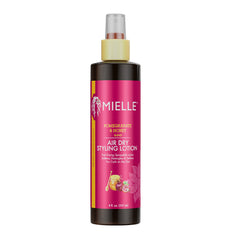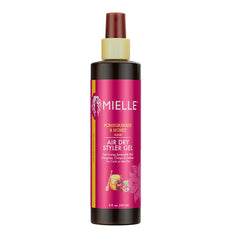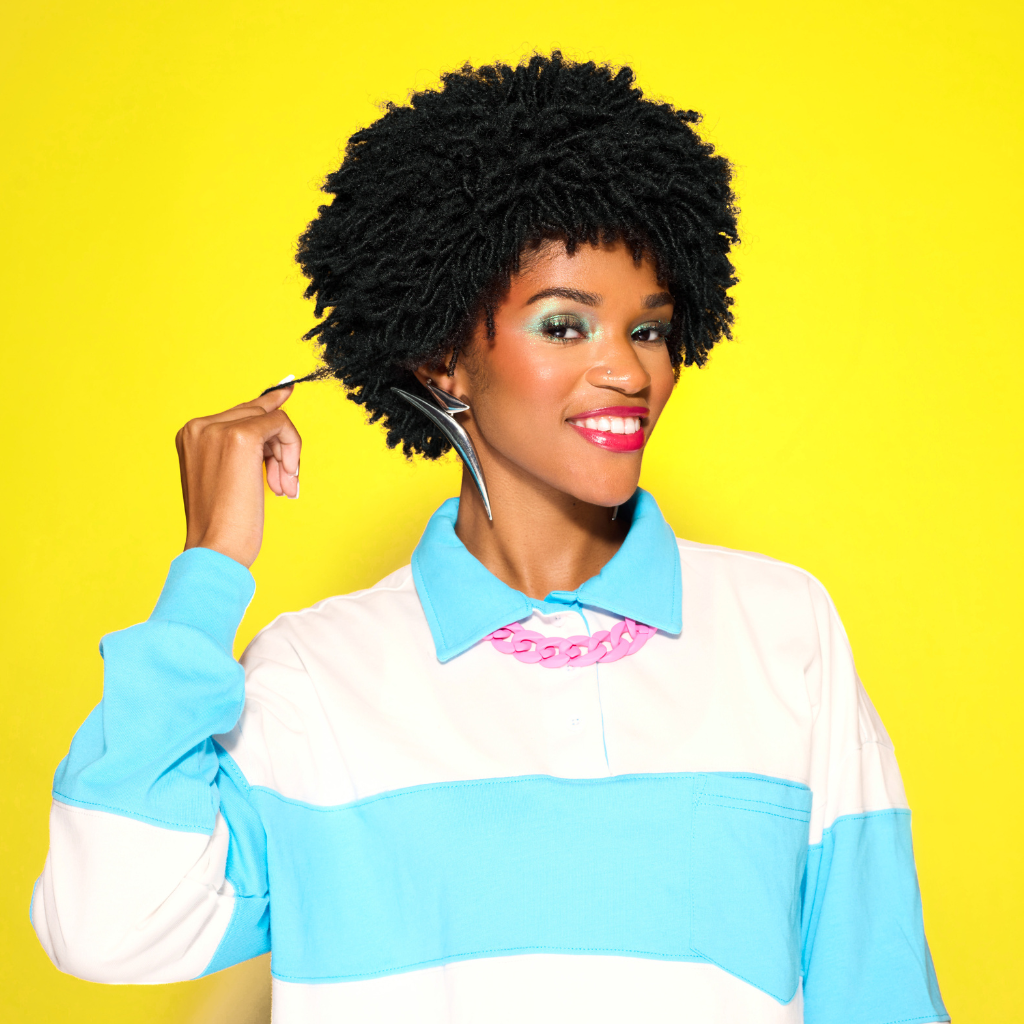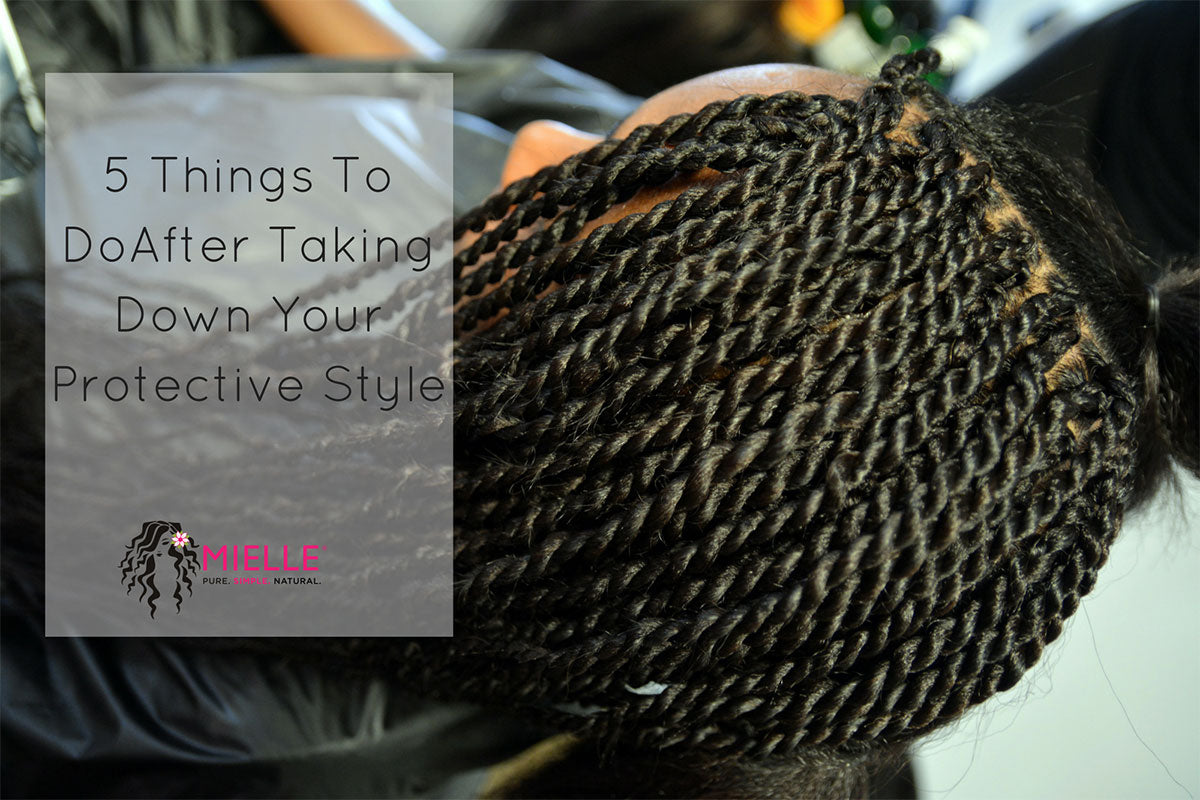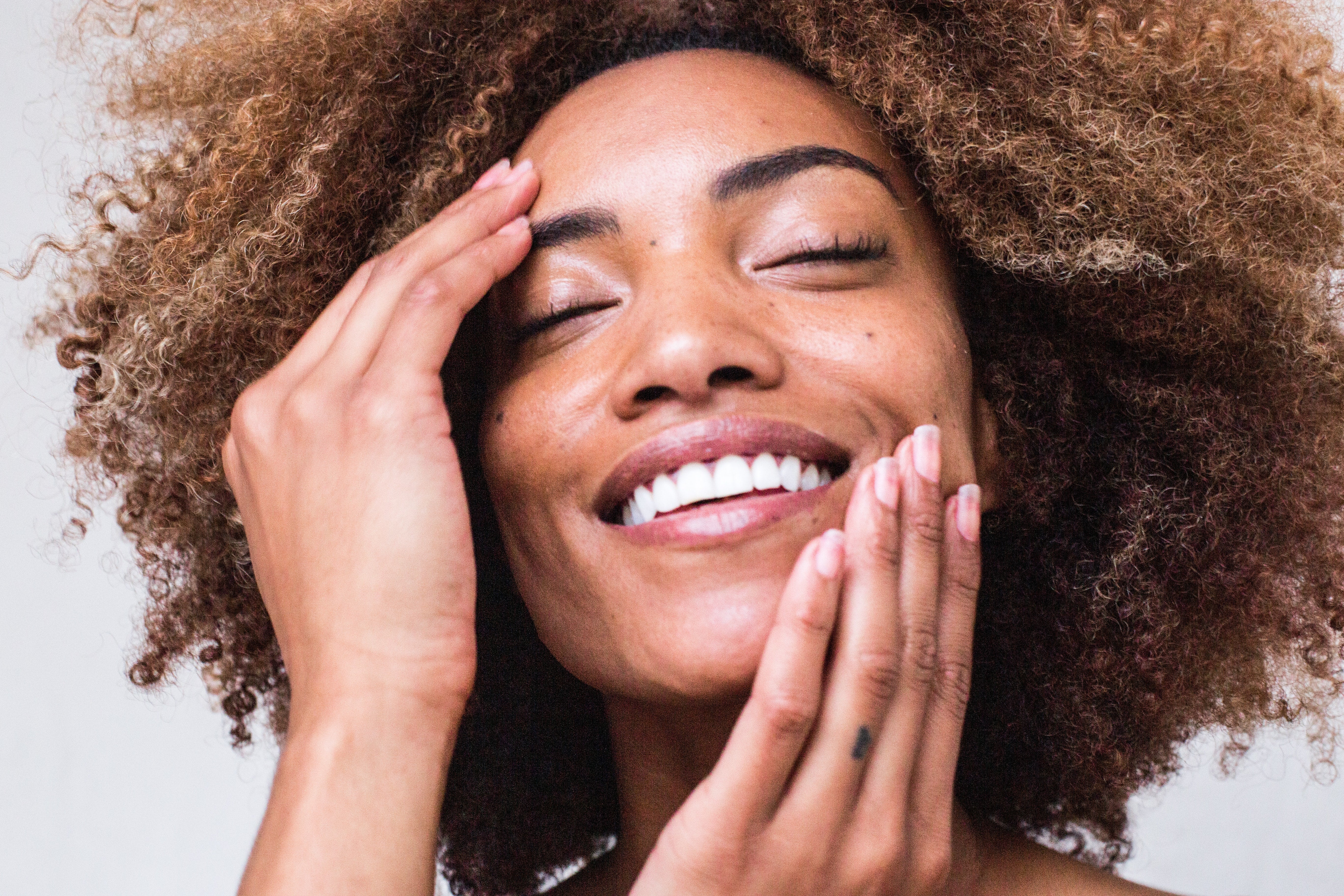We know how annoying and uncomfortable it is to experience an itchy or dry scalp. No need to be uncomfortable much longer, because we’ve got you covered with everything you need to know to keep your scalp healthy. We’ll get into what dry scalp is, differences between dandruff and dry scalp, what might be causing the irritation you're experiencing, and some tips on how to get your curls back to optimal health by using the right natural hair products, like rice water for hair!
What is Dry Scalp?
Is your scalp itching and flaking, but you’re not totally sure what’s going on? You might be experiencing a dry scalp. Dry scalp is a condition when the skin on the scalp doesn’t have enough moisture and becomes overly dry. If you’re familiar with skincare types, it's very similar to having a dry skin type. Similarly, when your face doesn’t produce enough sebum or oil, it becomes dry and can lead to itchiness and redness. A healthy scalp produces skin cells that overlap one another, creating a wall to allow and lock in the moisture our hair needs. When suffering from a dry scalp, that wall becomes compromised and prevents the moisture from being retained. The hydration cannot hold, resulting in dryness.
Signs and Symptoms
Not sure if you suffer from dry scalp? Here are some signs that you might be experiencing dry scalp:
- Have a dry skin type
- Experience dryness in other areas of the body
- Small, white flakes form in the scalp
- Mild itching
- The feeling of tightness on the scalp
- Redness
- Irritation
Scalp dryness can be a result of dandruff or it can also be caused by dandruff. Either way, having an itchy, dry scalp is just a symptom of another problem that’s going on. Let’s get to the root of it.
Dandruff vs Dry Scalp
Oftentimes people are confused about the difference between dandruff and dry scalp. Having a dry scalp is a less severe condition, and is relatively easier to manage and treat. Dandruff is a condition that produces flakes of skin on the scalp. About 1 in 5 Americans experience this condition. Some of the symptoms of dry scalp and dandruff can overlap, but there are key differences to look out for. To be sure you’re not suffering from dandruff, look for:
- Size and Color of Flaking: The flakes that appear due to dandruff are larger than flakes due to dry scalp, and can appear yellow or white.
- Scalp Condition: If your scalp feels oily, greasy, and is frequently very itchy or irritated, then you likely have dandruff.
- Dry Skin: If you have an overall dry skin type then you are likely to experience dry flaky scalp.
If you think you may be experiencing dandruff, consult your dermatologist or doctor.
What Causes Dry Scalp?
Let’s unpack how your scalp might’ve gotten here in the first place. Here are some underlying problems, or reasons you may be experiencing dry scalp:
Skin conditions
Skin conditions can be a major reason you're experiencing a dry scalp. The most common conditions include dandruff, psoriasis, and eczema. Consult your doctor if you think you may have any of the following.
Dandruff
Seborrhoeic Dermatitis, also known as dandruff flakes, can present with symptoms like itching, flakiness, or dry scalp, but is actually due to your scalp overproducing oil. Dandruff is caused by an autoimmune response or an allergy. It is not curable but can be managed using the right treatment, or symptoms can go away on their own.
Scalp psoriasis
Scalp psoriasis is a condition that causes a buildup of dead skin cells on your scalp that causes red, itchy, scaly patches. Psoriasis usually goes through cycles and flares up for weeks to months at a time when your immune system is suppressed. Psoriasis is not completely curable, but symptoms can be reduced and easily treated. So if you’re looking for tips on how to get rid of scalp build-up, it may be worth seeing if psoriasis is the root cause first.
Eczema
There are many different types of Eczema, but there are a few that can directly affect the scalp. Eczema is a common skin condition that results in a red, itchy, cracked, and dry scalp. Eczema that affects the scalp can come and go every so often, but can be managed with the right treatments.
Environmental factors
The climate you live in can impact the health of your scalp. During winter months in colder climates, the drop in humidity can cause not only your skin to dry out but your scalp too.
Hair products
Products like shampoos, hairspray, and gels are all regularly used products that can strip the hair of its natural oils, causing it to dry out. The hair products you’re using might contain harsh ingredients, like alcohol that can cause the scalp to react and become irritated.
Hormonal changes
Experiencing any type of hormonal changes due to stress, menopause, puberty, or pregnancy, can be the reason for your dry scalp. High levels of stress hormones can compromise the skin’s barrier and can trigger an irritated scalp.
Dietary Triggers
Our diet is important to our overall health, including the health of our scalp. Dairy products, sugary products, and spicy foods can all cause inflammation in the scalp for some. If you aren’t getting enough foods rich in Omega 3 fatty acids (fish, nuts, and plant oils) in your diet, you may also start to experience scalp irritation.
Excessive washing
Over-washing your hair removes the natural oils your hair needs to stay hydrated. Naturalistas, especially, don’t need to wash their hair more than once every one to two weeks.
Genetics
You could be vulnerable to experiencing dry scalp if it runs in your genetic makeup.
Treating Dry Scalp
Managing and learning how to moisturize the scalp is fairly easy. Here are some amazing tips as well as products we recommend to get your dry scalp to optimal health:
Use Scalp Oils
Using a scalp-specific oil will nourish your hair and lock in moisture. We recommend Mielle’s Rosemary Mint Scalp & Hair Strengthening Oil. This oil will prevent dry scalp, smooth split ends, and will leave your hair smelling bomb. Some other oils to help manage a dry scalp, include:
Mint Almond Oil
Try Mielle's Mint Almond Oil to help treat a dry or irritated scalp. This mint almond oil is a natural lightweight hair product that seals in moisture. While treating a dry, itchy scalp, this product will also help to reduce breakage. Apply the oil as a part of your hair care routine after wash day, while styling, or on dry hair.
Coconut Oil
Coconut oil has antifungal properties that prevent infections in the scalp. It will help to treat dry scalp and irritation, leaving your hair feeling smooth and looking shiny.
Tea Tree Oil
Tea tree oil has a natural oil with anti-fungal and anti-inflammatory properties that balance the scalp's moisture. Look for products containing tea tree oil, or mix the essential oil into your shampoo bottle and apply it directly to your scalp.
Wash Your Hair Less Often
If you’ve been experiencing irritation or inflammation you might be washing your hair too often. When you cleanse your hair too much, it strips the hair of the natural oils it needs to stay healthy and hydrated. We recommend washing natural hair once every 1-3 weeks. Pro Tip: Use warm water, rather than hot water, when washing your hair. Hot water can dry out the hair and can lead to breakage.
Switch Up Your Shampoo
Dry scalp can be a result of using shampoos that contain chemicals and harsh ingredients. Harsh products, especially shampoos, can strip your hair of its natural oils. If you’ve been experiencing any symptoms of a dry scalp, try switching up your shampoo. Look for a gentle shampoo or a dandruff shampoo that doesn’t contain alcohol.
Massage Your Scalp
At no extra cost, you can take time for some self-care and massage your scalp to help treat dry scalp. While washing your hair or even doing a hot oil dry scalp treatment, use your fingertips to massage your scalp for at least 5 minutes. This creates blood circulation that our hair needs to get longer. Massage your scalp using the Moisture RX Hawaiian Ginger Moisturizing Scalp Treatment. A great product to help manage and treat a dry scalp. You can use it on natural hair and while your hair is in a protective style- when a dry scalp can be especially irritating. With a few sprays, this product will bring great relief for irritation.
Stay Hydrated
Drinking water is not only great for our skin but our hair as well. Water will replenish the moisture your hair loses throughout the day. Make sure to get the recommended amount of 8 cups per day.
Use Rice Water
Many different hair care products contain rice water, from shampoos to conditioning sprays. Mielle Organics's Rice Water Collection has the perfect products for all curly girls, no matter hair type, length, or texture.
- Rice Water Moisturizing Milk is great for strengthening and hydrating your scalp and hair
- Rice Water Hydrating Shampoo promotes healthy hair and will give your curls the shine they’ve been needing
- Rice Water Clay Masque detoxifies the hair by removing impurities while bringing hydration and moisture back into your strands
- Rice Water Shine Mist is a refreshing and hydrating product, perfect for everyday use
If you’re experiencing irritation, a flaky scalp, or a dry scalp, it’s easy to care for and maintain a healthy scalp. Remember to only wash your hair as needed, stay hydrated, and take some time to treat yourself with a hot oil scalp massage. With the right products and routine, your scalp should be feeling hydrated in no time, naturalistas!
Resources:
- Neoteric cosmetics. Scalp conditions. https://www.neotericcosmetics.com/scalp-conditions/
- https://www.nexxus.com/us/en/haircare-101/dry-scalp-causes-and-reasons-for-dry-scalp/
- Nexxus. What causes dry scalp & reasons for dry scalp. https://www.glamour.com/story/how-to-treat-a-dry-flaky-scalp
- Healthline. Is It Dandruff or Dry Scalp? Symptoms, Treatment, and More. https://www.healthline.com/health/skin-disorders/dandruff-vs-dry-scalp#treatment
- WebMD. What Causes Dry Scalp?. https://www.webmd.com/skin-problems-and-treatments/dry-scalp-causes#1-2
